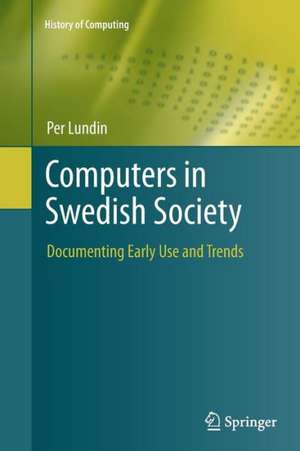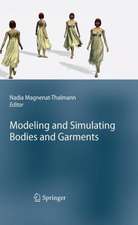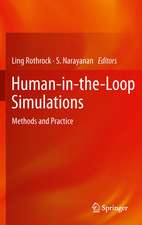Computers in Swedish Society: Documenting Early Use and Trends: History of Computing
Autor Per Lundinen Limba Engleză Paperback – 11 iun 2014
| Toate formatele și edițiile | Preț | Express |
|---|---|---|
| Paperback (1) | 638.55 lei 6-8 săpt. | |
| SPRINGER LONDON – 11 iun 2014 | 638.55 lei 6-8 săpt. | |
| Hardback (1) | 643.50 lei 6-8 săpt. | |
| SPRINGER LONDON – 4 mai 2012 | 643.50 lei 6-8 săpt. |
Din seria History of Computing
- 21%
 Preț: 248.72 lei
Preț: 248.72 lei - 20%
 Preț: 276.62 lei
Preț: 276.62 lei - 20%
 Preț: 440.22 lei
Preț: 440.22 lei - 20%
 Preț: 987.57 lei
Preț: 987.57 lei -
 Preț: 291.11 lei
Preț: 291.11 lei - 20%
 Preț: 224.97 lei
Preț: 224.97 lei -
 Preț: 253.85 lei
Preț: 253.85 lei -
 Preț: 294.37 lei
Preț: 294.37 lei -
 Preț: 326.35 lei
Preț: 326.35 lei - 20%
 Preț: 176.49 lei
Preț: 176.49 lei - 20%
 Preț: 270.51 lei
Preț: 270.51 lei - 20%
 Preț: 333.54 lei
Preț: 333.54 lei - 20%
 Preț: 764.76 lei
Preț: 764.76 lei - 20%
 Preț: 229.81 lei
Preț: 229.81 lei - 20%
 Preț: 273.64 lei
Preț: 273.64 lei - 20%
 Preț: 227.29 lei
Preț: 227.29 lei -
 Preț: 315.80 lei
Preț: 315.80 lei -
 Preț: 479.72 lei
Preț: 479.72 lei - 20%
 Preț: 235.56 lei
Preț: 235.56 lei - 20%
 Preț: 216.00 lei
Preț: 216.00 lei - 20%
 Preț: 1008.62 lei
Preț: 1008.62 lei - 20%
 Preț: 270.19 lei
Preț: 270.19 lei - 20%
 Preț: 983.71 lei
Preț: 983.71 lei - 20%
 Preț: 224.50 lei
Preț: 224.50 lei -
 Preț: 375.40 lei
Preț: 375.40 lei - 20%
 Preț: 1046.71 lei
Preț: 1046.71 lei - 20%
 Preț: 645.31 lei
Preț: 645.31 lei -
 Preț: 238.69 lei
Preț: 238.69 lei - 20%
 Preț: 360.71 lei
Preț: 360.71 lei - 20%
 Preț: 281.10 lei
Preț: 281.10 lei -
 Preț: 325.97 lei
Preț: 325.97 lei -
 Preț: 325.43 lei
Preț: 325.43 lei
Preț: 638.55 lei
Preț vechi: 798.18 lei
-20% Nou
Puncte Express: 958
Preț estimativ în valută:
122.19€ • 130.66$ • 101.88£
122.19€ • 130.66$ • 101.88£
Carte tipărită la comandă
Livrare economică 18 aprilie-02 mai
Preluare comenzi: 021 569.72.76
Specificații
ISBN-13: 9781447158578
ISBN-10: 1447158571
Pagini: 156
Ilustrații: VIII, 148 p.
Dimensiuni: 155 x 235 x 8 mm
Greutate: 0.23 kg
Ediția:2012
Editura: SPRINGER LONDON
Colecția Springer
Seria History of Computing
Locul publicării:London, United Kingdom
ISBN-10: 1447158571
Pagini: 156
Ilustrații: VIII, 148 p.
Dimensiuni: 155 x 235 x 8 mm
Greutate: 0.23 kg
Ediția:2012
Editura: SPRINGER LONDON
Colecția Springer
Seria History of Computing
Locul publicării:London, United Kingdom
Public țintă
ResearchCuprins
Background and Theoretical Assumptions.- Documenting the Use of Computers.- Oral Evidence and the Swedish Historiography of Computing.- Appendices.Oral Evidence and the Swedish Historiography of Computing.- Appendices.Oral Evidence and the Swedish Historiography of Computing.- Appendices.
Recenzii
From the book reviews:
“Computers in Swedish Society has something of interest to anyone planning an oral history project (particularly one around technology), and to those interested in the early adoption of computers or in the role of users in shaping technology. For oral historians there is much valuable practical advice and methodological discussion, particularly around the comparison of different means of personal testimony gathering.” (Thomas Lean, Oral History, Vol. 42 (2), 2014)
“Computers in Swedish Society has something of interest to anyone planning an oral history project (particularly one around technology), and to those interested in the early adoption of computers or in the role of users in shaping technology. For oral historians there is much valuable practical advice and methodological discussion, particularly around the comparison of different means of personal testimony gathering.” (Thomas Lean, Oral History, Vol. 42 (2), 2014)
Textul de pe ultima copertă
In order to understand the role of computers in society, it is important to consider the complex relationship between the design and use of computers from the perspective of the user.
Computers in Swedish Society reviews this shift in the historiography of computing from inventors and innovations to a user-perspective, and examines how the relevant sources can be created, collected, preserved, and disseminated. The text describes and evaluates a collaborative project in Sweden that documented the stories of around 700 people, and obtained extensive donations of archival records and artifacts. The book also provides a critical discussion on the interpretation of oral evidence, presenting three case studies on how this evidence can inform us about the interaction of computing with large-scale transformations in economies, cultures, and societies.
Topics and features:
Computers in Swedish Society reviews this shift in the historiography of computing from inventors and innovations to a user-perspective, and examines how the relevant sources can be created, collected, preserved, and disseminated. The text describes and evaluates a collaborative project in Sweden that documented the stories of around 700 people, and obtained extensive donations of archival records and artifacts. The book also provides a critical discussion on the interpretation of oral evidence, presenting three case studies on how this evidence can inform us about the interaction of computing with large-scale transformations in economies, cultures, and societies.
Topics and features:
- Describes a historiography aimed at addressing the question of how computing shaped and transformed Swedish society between 1950 and 1980
- Presents a user-centered perspective on the history of computing, after explaining the benefits of such an approach
- Examines the documentation of users, describing novel and innovative documentation methods such as witness seminars and Internet-based collections of memories
- Discusses the pros and cons of collaborative projects between academia and industry
- Provides case studies on the interpretation of oral evidence, dealing with social networks and flows of knowledge, users and uses of technology, and the materiality and geography of computing
Caracteristici
Describes a historiography aimed at addressing the question of how computing shaped and transformed Swedish society between 1950 and 1980 Presents a user-centered perspective on the history of computing Examines the documentation of users, describing novel and innovative documentation methods











